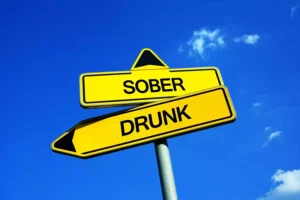
Kidney pain after drinking can stem from various factors, including dehydration or underlying conditions. Therefore, if kidney pain persists after drinking, consulting a doctor to rule out any medication-related issues is recommended. Kidney discomfort after alcohol consumption can be concerning, and it’s crucial to understand that this symptom isn’t solely indicative of a kidney problem. Several other conditions can mimic kidney pain, particularly when alcohol is a factor. Experiencing kidney pain after drinking alcohol can be concerning, often linked to dehydration or irritation.
Kidney Anatomy and Function Relevant to Alcohol Consumption: Kidneys Hurt After Drinking Alcohol
Certain foods and dietary components can increase inflammation or stress on the kidneys, potentially worsening soreness after alcohol consumption. High sodium intake, for instance, can lead to water retention, which might contribute to discomfort. Processed foods, often high in sodium and unhealthy fats, should be limited. Similarly, foods high in purines, such as red meat and organ meats, can increase uric acid levels, potentially causing inflammation. When you drink alcohol, your kidneys can struggle to function properly as various physiological processes become disrupted.
- Their intricate structure and complex functions make them susceptible to damage from various substances, including alcohol.
- All the intake fluids are discharged through the kidneys in urine after the body takes in the essential nutrients.
- Alcohol’s dehydrating effects can significantly strain kidney function, leading to discomfort ranging from mild aches to more severe pain.
- These changes include increased blood flow initially, followed by a decrease in blood flow as the body attempts to compensate for dehydration.
When to see a doctor

Drinking alcohol may exacerbate the signs and symptoms of a urinary tract infection. Consume a lot of water and get in touch with your doctor right away if you suspect kidney infection. Ankle, lower back, and the area between the buttocks and lower ribs can all be affected by kidney pain.After drinking alcohol or after quitting, you might experience the pain right away. It is important for you to understand how drinking excessive alcohol can adversely affect your kidney health. Alcohol may indirectly increase the risk of developing a urinary tract infection (UTI).
Determining When to Seek Immediate Medical Attention
The symptoms and severity of a UTI may get worse after drinking alcohol. Drinking alcohol if you already have kidney stones may cause them to move quickly. To treat liver disease, you may be advised to stop drinking alcohol, lose weight, and follow a nutritional diet. For these reasons, it’s natural that when your kidneys have to work extra hard to rid the body of excess alcohol, you may experience pain. Frequent Drug rehabilitation urination that goes along with this flushing of the system can lead to dehydration. This can interfere with the functioning of the kidneys and other organs.


A nephron consists of a glomerulus, a network of capillaries where filtration occurs, and a renal tubule, where filtered substances are reabsorbed or secreted. The glomerulus is particularly vulnerable to the damaging effects of alcohol, as its delicate capillaries are susceptible to inflammation and injury. Having more than three drinks in a day (or more than seven per week) for women, and more than four drinks in a day (or more than 14 per week) for men, is considered “heavy” drinking.
How to Drink Safely for Your Kidney Health

Misdiagnosis can lead to delayed or inappropriate treatment, potentially worsening the condition. Alcohol can dehydrate your system and impair your kidney’s ability to function. Threats to proper kidney function lead to severe medical issues and negatively impact other body parts.
- This obstruction can lead the renal pelvis to become swollen or enlarged.
- If you do decide to drink, you can mitigate some risks by pairing alcohol with non-alcoholic beverages like water.
- Common types of kidney stones include calcium oxalate, uric acid, struvite, and cystine stones.
- Electrolyte-containing beverages can also help maintain proper fluid balance.
Painful Kidneys After Drinking A Comprehensive Guide
- Experiencing kidney discomfort after alcohol consumption is relatively common, often stemming from dehydration and the liver’s processing of alcohol.
- Kidney soreness after excessive alcohol consumption is a common complaint, often stemming from dehydration and the strain placed on the kidneys during processing.
- Moderate beer intake may help increase urine volume, which can aid in passing small kidney stones.
- You may also experience kidney pain immediately after drinking alcohol or after you have stopped drinking.
His symptoms gradually resolved over several days with complete recovery of renal function within a few weeks. The following case studies illustrate the diverse presentations of kidney discomfort following alcohol consumption. It’s crucial to remember that these are hypothetical examples what helps kidney pain after drinking alcohol and real-world scenarios may present with greater complexity. Accurate diagnosis requires a thorough patient history, physical examination, and appropriate laboratory investigations. Alcohol itself can exacerbate underlying conditions or trigger new ones, making accurate diagnosis challenging but essential for appropriate treatment.
- A 35-year-old male presented to the emergency room complaining of severe, sharp pain in his right flank, radiating to his groin.
- When ADH is suppressed, your body produces more urine than usual, increasing the likelihood of dehydration.
- This article will help clarify the symptoms, potential causes, and appropriate responses to kidney discomfort following alcohol consumption.
- If you’re looking for kidney health support, consider beers made with whole ingredients and lower sugar contents.
- We will examine the complex interplay between hydration, kidney function, and pain perception, exploring how different fluids – from water to alcohol – can influence kidney health.
Over time, the diuretic and inflammatory effects of alcohol combine with elevated blood pressure and poor nutrition, gradually impairing kidney function. Symptoms might initially go unnoticed until kidney function is significantly diminished, highlighting the importance of early intervention and regular checkups. This seemingly simple statement can mask a range of potential issues, from benign dehydration-related discomfort to more serious underlying medical conditions. Understanding the nuances of kidney pain following fluid intake requires considering several factors, including the type and amount of fluid consumed, individual health history, and dietary habits. This exploration will delve into the common causes, diagnostic approaches, and appropriate management strategies for this concerning symptom.

Lascia un commento